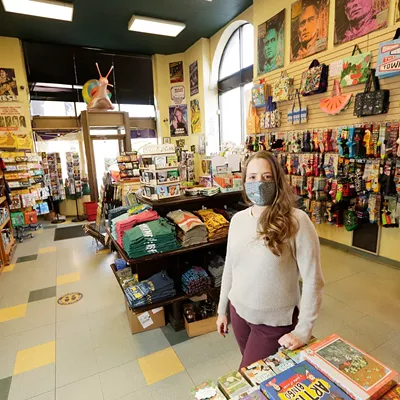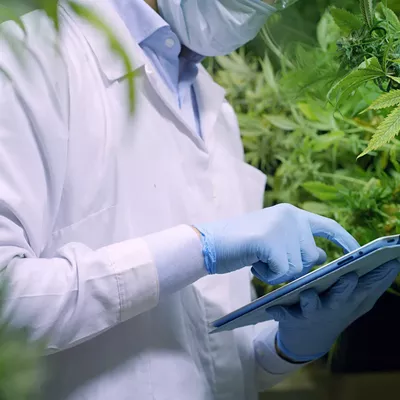A couple of nights ago I opened a book and began reading aloud to my kids. My 10-year-old son interrupted me by resting a hand on my forearm.
“Mom,” he said, “I’m scared.”
I asked him what he was scared of, but I knew even before he answered: Coronavirus.
I closed the book, rested it on my stomach. H— settled his head on my shoulder. “I’m not worried about getting it,” he said. “I’m worried about you getting it.”

H— knows I’m on immunosuppressants for multiple sclerosis, powerful drugs that stave off disease progression but also make me more vulnerable to illness. Even before the pandemic, our household was big on hand-washing and coughing into our elbows. But I’ve also been guilty of minimizing the issue, not wanting to worry my children with it. I allowed them to go to school the last day it was open; I went to work at Wishing Tree Books despite my husband’s desperate pleas for me to stay home. I didn’t want to admit — especially to myself — that I’m in a high-risk category. To do so felt selfish, melodramatic. It wasn’t until I was there at work, nauseous with fear over every transaction, that I realized how reckless I was being, that ignoring my vulnerability was, in fact, a selfish act.
I kissed H—’s forehead and told him, “I’ll probably be okay. But this is why the quarantine is important, even though it’s hard. We’re trying not to overwhelm the hospitals. That way, if I need help, or if anyone we love needs help, they can get it quickly and efficiently.”
The immunosuppressant I’m on, Ocrevus, lists upper and lower respiratory infections as two of its most common side effects. I have infusions every six months. My last one was on March 1. I fought to get the infusion scheduled. After an insurance change and a neurologist removed from practice, it was an ordeal. Those of us with chronic illnesses are accustomed to the boring ritual of phone calls, of being placed on hold, of being told we’ve done something in the wrong order, of being told to call one place only to be told to call the other place back again. As a writer who loves absurdism, I can’t help but feel mildly amused by this Sisyphean task of managing one’s care. What a triumph it was when — finally — I received my infusion at the cancer clinic. Over the last year infusions have greatly reduced my MS symptoms, especially the fatigue, which for me has been the most onerous of symptoms.
But then a week ago I read on MS Trust that people on disease modifying treatments (DMTs) such as Lemtrada and Ocrevus should consider delaying their next infusion; the risk of pneumonia is too great. The National MS Society argues against this, noting the increased potential for infections but urging everyone to discuss with their physician any changes to their DMTs. They were careful to remind us that if you stop a DMT, disease progression continues. A lot of times, disease progression continues, anyway, DMT or no. I’m nagged by the thought that what might help me might also end up killing me.
It’s naïve to say that I’m not afraid of death, but for a long time now I’ve held a private belief that with death comes a profound peace, and I like to think I will face my end bravely. But when I think of my children, I grow panicky. I agonize over the thought of their distress, their sorrow, their pain, anguish I won’t be able to kiss away or offer to carry for them. They are amazing children, so sensitive and bright and kind and funny. They are completely different from one another and completely extraordinary. I continue to learn about who they are every day, these intricate, wondrous beings. I worry that there is so much love I haven’t yet given them, even though I spend most of my day pouring it into them until they roll their eyes and laugh and say, “Yeah, Mom, we know you love us, you tell us all the time.” Their teasing me about this calms me, reminds me that even as flawed of a mom as I am, they believe in my unconditional love for them.
That night with my son, I told him, “I’m scared, too. And I’m so good at worrying. I’m an expert at it! Why don’t you give me your worry tonight and I’ll stir it around with my own worries and you can relax a little?”
My son smiled, snuggling into me. I watched his shoulders visibly release. He handed his worry to me and I gobbled it up. My 7-year-old daughter, sensing the uplift in the mood, ran and grabbed a funnier book for us to read, and then we cuddled up in my bed, howling with laughter over Junie B. Jones. The kids scooted off to their rooms and they fell sleep easily.
I stayed up too late, stirring our worries together. I thought about things too long and too hard. For those of us who like to establish control, who like to know what to expect, nights are particularly grueling right now.
This morning at 4 am, my daughter came into my room. “I miss you,” she told me, as she often tells me when she’s worried or sad. I groggily stumbled with her back to her own room. It felt like a gift to lie down next to her in her twin bed, to be close and still. But a few minutes later she sat upright, gasping, and said she needed to vomit. We went to the bathroom. I stayed with her for an hour while she was sick, my hand on her trembling back. At her request, I read Greek myths to her to pass the time. Finally we made it back to her bedroom. Her head and body were hot. I turned the house upside down looking for a thermometer and failing. I wondered where she would have picked up a stomach bug. She’d had mild diarrhea earlier in the day. That’s not coronavirus, right? But when I checked the internet, it said, yes, 49 percent of people with the virus begin with GI symptoms.
Now, several hours later, I have the GI symptoms, too. There is no fever for me yet, but I’m weary.
After tending to the children, giving them breakfast, feeling relieved to see my daughter up and eating, I allow them to watch TV and relax. Then I find my husband, who always offers to carry my worries for me, and I talk to him and cry.
I’m scared. I’m overreacting. I’m in love with my family. I’m bewildered. I want to help the whole world heal, not just from this but from everything, all of the harm we cause one another, because look, too, at all of this wild, out-of-control, miraculous love. What if L— worsens, needs to be hospitalized? What if both of us, my husband and I, are hospitalized, too? What if both of us die? What then? My husband has had pneumonia three times. I worry he’ll get it again. I worry and worry and worry.
My husband listens closely and gently reminds me not to get too ahead of myself. He assures me we’ll get through this. When my fears reach their zenith, he tells me that no matter what, the kids will be okay, because they are amazing, they are loved, and they will need to be resilient because, at some point, resilience is a part of growing up. Like with anything, we handle what comes because we are given no choice but to handle it. I know this as well as anyone. It occurs to me that I’ve never been comfortable with the letting go.
My husband plans a trip to the store to get a thermometer. We have no choice but to wait and see. We stir our worries together because these worries mean we care. What an amazing thing it is to be alive, to be in love, to be a mother, to be so fragile in these temporary bodies. Those of us who are immunocompromised are already acquainted with the panic and mystery of our mortal bodies. This is familiar territory for me in many ways, but the fear is sharper today, more vivid. And so, too, is the love.
I’m marveling at all that we are, our entity as opposed to our identity, our heightened awareness of all that matters to us.
I take a deep breath.
I hope I can keep taking them.
Into this cauldron of worries I pour my whole heart. ♦
Sharma Shields is the author of a short story collection, Favorite Monster, and two novels, The Sasquatch Hunter’s Almanac and The Cassandra. Sharma runs a small press, Scablands Books, and is a contributing editor for Moss. A current employee of Wishing Tree Books in Spokane, Sharma has worked in independent bookstores and public libraries throughout Washington State. She lives with her husband (writer and graphic novelist Simeon Mills) and their two children.





















